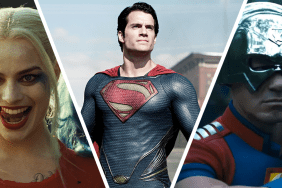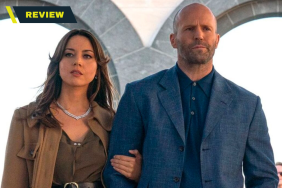
More questions than answers are brought up with Oliver Stone’s W., and not just in terms of the movie’s content, but its creation as well.
Why make a movie about George W. Bush and release it only three weeks prior to the election escorting him out of the White House? That’s the first one that comes to mind, but as the movie plays out you quickly realize there doesn’t seem to be an agenda of any kind, at least not an obvious one, which only reinforces the question. Stone, a liberal more than willing to say his share when asked, treats the subject matter extremely honestly, so honest actually that it feels abridged and lacking guts. Of course, this is coming from someone that has been paying attention over the past eight years, others may be a bit for susceptible.
W. bounces around between Bush’s college days at Yale, his time co-owning the Texas Rangers, running for Governor of Texas and waging war in Iraq. The thread used to keep the timeline together is W.’s determination to please his father. Josh Brolin falls perfectly into this character. He has all the personality, charisma and aloofness Bush used to win favor in the eyes of Americans but the one he couldn’t sway, his father, George H.W. Bush (James Cromwell) appears as something of a rock in W.’s life, immovable and unimpressionable.
W. plays second to the favored son Jeb, but determination, a willingness to win and the supposed calling of God motivates W. all the way to the White House. Unfortunately a willingness to win doesn’t make you the man for the job.
Second to the daddy story, W. is portrayed as something of a puppet President with Karl Rove as the primary puppet master and a team of dimwits helping him along. Condoleezza Rice as portrayed by Thandie Newton is a performance Newton certainly embraced, but is given nothing to do with. Richard Dreyfuss as Dick Cheney, Scott Glenn as Donald Rumsfeld and Toby Jones as Rove serve as the primary “villains”, almost using W. as a weapon to be influenced for their own gains. One scene in particular has Cheney almost playing a strategist you would expect guiding Alexander the Great or Adolf Hitler on their way to global domination. Scenes like that are particularly scary, and while screenwriter Stanley Weiser couldn’t know what exactly was said behind closed doors there has been enough written about the administration that the liberties taken don’t feel too far out of bounds.
If there is a hero to be found, or at least a man standing up for what is right, that would be Colin Powell played by Jeffrey Wright, which is quite possibly the best performance of the bunch. Wright is asked to be the ignored voice of reason and is virtually forced against his will to go along with the insane tactics he is asked to support despite protestation.
When it is all said and done, however, you come out with more questions than you went in with. Walking away you almost feel sorry for W., a man that never appears to have anything but the best intentions, but not the wherewithal to achieve them. The right words escape him and the right ideas never come to mind. Did Stone want us walking away from this film feeling sorry for a Daddy’s boy that could never please his father, or does he want us to use this example to hopefully make better judgment as voting citizens in the future? I think he leaves the questions and answers up to you, which is probably the best way to do it, but as it turns out it makes for a rather boring film.










